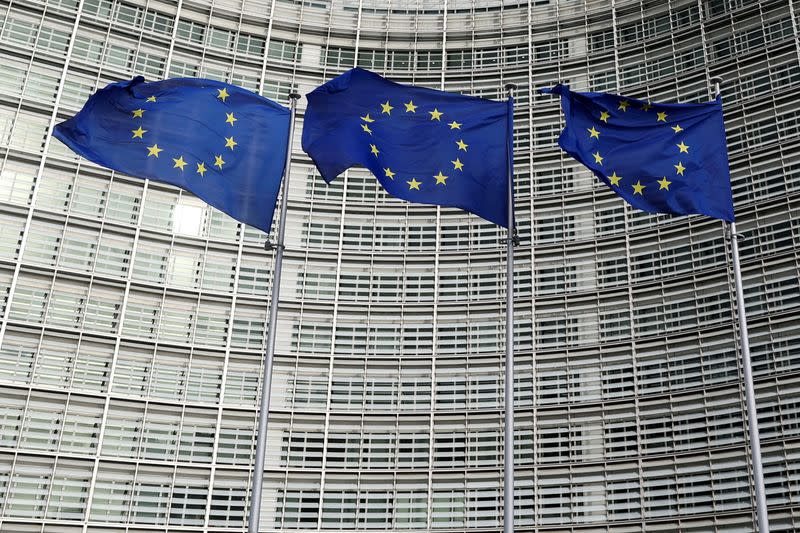No quick EU path to give Ukraine profits on sanctioned Russian assets

By Gabriela Baczynska
BRUSSELS (Reuters) -The European Union's executive is due to approve next week a legal proposal on using proceeds from Russian assets frozen under sanctions, but doubts in France, Germany and Belgium mean Ukraine would not get the money anytime soon, officials and diplomatic sources said.
The draft law is expected on Dec. 12, two days before the year's final summit of the EU's 27 national leaders at which billions of much-needed budgetary and military aid for Kyiv are at stake, as well as advancing Ukraine's membership bid.
The prospect of a Hungarian veto and budget bickering between EU states weigh heavy on chances for an agreement that would give a boost to Ukraine, exhausted fighting against a Russian invasion through the war's second winter.
Kyiv would not be getting instant good news either on getting its hands on proceeds derived from frozen Russian assets, according to diplomats and officials in EU hub Brussels who laid out lingering doubts by the three key capitals.
A German foreign ministry spokesman said Berlin was actively chasing assets of sanctioned persons and entities to freeze.
"To what extent such assets can be used for reconstruction is under discussion on the EU level. But we need to consider all relevant financial and judicial questions as a whole," he said.
The EU executive says some 28 billion euros worth of private Russian assets and a further 207 billion euros of the Russian central bank's funds are arrested in the bloc.
Some 125 billion euros of the latter sum is held by Belgian company Euroclear. Belgium estimated it would collect 2.3 billion euros in taxes on that in 2023-24. It said it would use those proceeds to help Ukraine.
"NOT IN THE NEAR FUTURE"
The Commission's proposal next week would aim to introduce standard rules for handling such assets across all EU states. Unanimous backing of the 27 would be needed to enact it.
The proposal would clarify legal obligations of institutions involved, as well as tasking them to put the immobilised Russian assets aside, according to EU officials.
Crucially, it would not, however, include a direct proposal to transfer new proceeds on those assets into the EU budget, said the officials, quoting litigation risks, management questions and criticism by the European Central Bank.
EU leaders are not expected to give the proposal their final approval at the summit but, possibly, task their 27 governments to work more on it. With heavyweights Germany and France voicing reservations, no quick deal is in sight.
"A group of member states still has legal concerns," said a senior EU diplomat, adding that transferring the funds to central EU coffers was "nothing that I could see happening in the near future."
A Belgian official said any such new levy needed to be done hand-in-hand with the global West.
The official saw more as declaration of intent than a necessary specific formula a G7 statement on Wednesday calling for "decisive progress" to support Ukraine through windfall profits of companies holding blocked Russian sovereign assets.
If the experience of G7 sanctions on Russian oil and diamond imports were to serve as a guide, agreeing such measures and putting them in place is bound to take weeks if not months.
There was no response from the Elysee to a request for comment on Friday.
(Reporting by Gabriela Baczynska, additional reporting by Alexander Ratz in Berlin and Elizabeth Pineau in Paris; Editing by Angus MacSwan, Kirsten Donovan)


